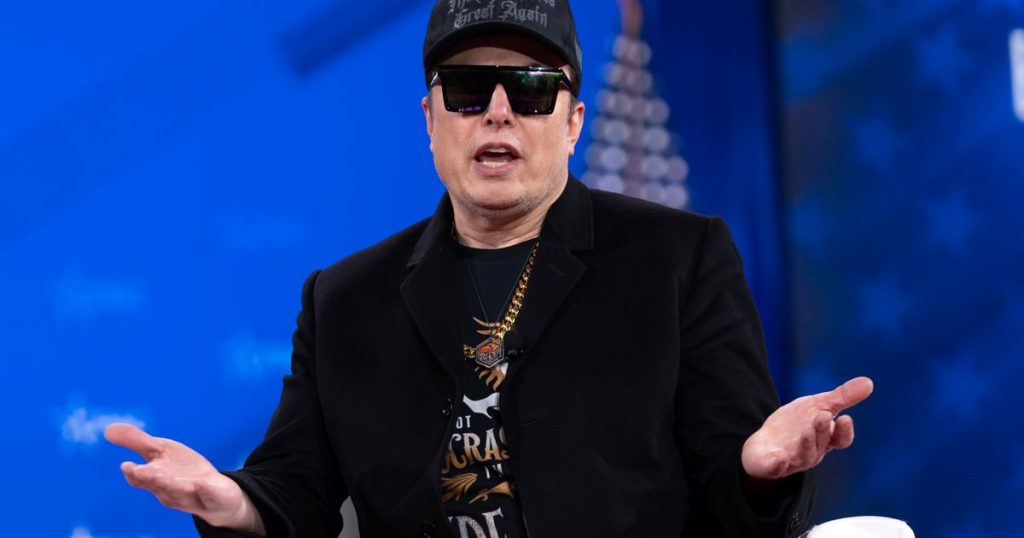Federal Employees Caught in the Crossfire of Musk’s Email Fiasco
A Weekend of Uncertainty: Musk’s Email Demands Sparks Chaos
The weekend of February 17-18, 2024, will be remembered as a time of high anxiety for federal employees across the United States. On Saturday, February 18, an email purportedly from the "HR" department, later revealed to be at the direction of Elon Musk, the billionaire CEO of Tesla and a close adviser to President Donald Trump, landed in the inboxes of millions of federal workers. The email, which was sent through the Office of Personnel Management (OPM), demanded that employees list their accomplishments from the previous week. It ominously warned that failure to respond would be interpreted as a resignation.
The email was sent to all 2 million federal employees, and its tone and timing sent shockwaves throughout the federal workforce. The message was simple: reply with a list of five bullet points detailing what you had accomplished, and make sure to cc your manager. The email also cautioned against including classified information. For many federal employees, the weekend, which is typically a time for rest and relaxation, turned into a period of worry and confusion. Questions abounded: Was this email legitimate? What would happen if they didn’t respond? How would their managers interpret the request?
OPM Steps In: The Email is Voluntary, Not Mandatory
By Monday afternoon, the Office of Personnel Management (OPM) clarified the situation. In a reversal that many saw as an embarrassed backtracking, OPM declared that the email was entirely voluntary. In a message to federal employees, OPM stated that non-responses would not be considered as resignations. This clarification came after widespread confusion and panic among federal workers. The Social Security Administration’s HR department was one of the first to communicate this update to its workforce, reassuring employees that they were under no obligation to respond to the email.
The initial email had been met with disbelief and anger, with many employees and their representatives expressing outrage over what they saw as a heavy-handed and demoralizing tactic. “Elon Musk’s latest email fiasco is yet another example of the chaotic and callous treatment of federal employees that has been the hallmark of Trump’s second term,” said Everett Kelley, president of the American Federation of Government Employees, the largest union representing federal workers. “It was nothing but a cynical attempt to demean federal workers and terrorize them into quitting.”
musks cost-cutting measures under fire
The email controversy is just the latest in a series of moves by Musk and his so-called “Department of Government Efficiency” (DOGE) to slash the federal workforce. DOGE, which was established with the stated goal of reducing government spending, has been at the center of a series of contentious actions that have drawn widespread criticism from federal employees, unions, and even some Republican lawmakers. Musk’s cost-cutting efforts have included mass layoffs, many of which have been deemed illegal by courts and administrative agencies.
The backlash against DOGE has been intense, with multiple agencies scrambling to rehire key employees who were let go in the initial rounds of layoffs. In one particularly embarrassing episode, the Department of Veterans Affairs (VA) was forced to reinstate hundreds of employees who had been terminated in a haphazard manner. The VA’s actions were widely criticized, with lawmakers on both sides of the aisle expressing outrage over what they saw as a reckless disregard for the well-being of veterans and VA employees.
Political Fallout: Republicans Push Back Against Musk
The email fiasco has also opened up a rift within the Republican Party, with some GOP lawmakers publicly criticizing Musk and his tactics. While President Trump has been a vocal supporter of Musk’s efforts, praising the email initiative as “genius,” other Republicans have been more cautious. Senate Appropriations Committee Chair Susan Collins (R-Maine) expressed her approval of agency heads who have pushed back against Musk’s directives. “I was glad to see some of the new department heads have pushed back against that,” Collins told HuffPost. “It should not be Elon Musk’s call.”
Other Republican senators have been even more critical. Sen. Shelley Moore Capito (R-West Virginia) described the email as mishandled, saying, “I don’t think it was handled very well in terms of the surprise element of it or what the point of it was.” Sen. Lisa Murkowski (R-Alaska) was more direct, writing on social media that Musk’s approach was disrespectful to federal workers. “If Elon Musk truly wants to understand what federal workers accomplished over the past week, he should get to know each department and agency, and learn about the jobs he’s trying to cut,” Murkowski wrote. “Our public workforce deserves to be treated with dignity and respect for the unheralded jobs they perform. The absurd weekend email to justify their existence wasn’t it.”
Agencies Respond: Mixed Messages and Mixed Reactions
The response to the email has varied across federal agencies, reflecting the confusion and uncertainty that permeated the weekend. Some agencies, such as the FBI and the Department of Agriculture, quickly informed their employees that they did not need to respond to the email. FBI Director Kash Patel told his workforce to “pause” their responses, while the USDA assured employees that there would be no penalty for not complying with the request.
Other agencies, however, took a different approach. The Department of Health and Human Services (HHS) told employees that they were welcome to respond to the email, but also warned them to be cautious about what they shared. In an email viewed by HuffPost, HHS staffers were advised to “assume that what you write will be read by malign foreign actors and tailor your response accordingly.” The Department of Interior, meanwhile, took the most stringent approach, informing its tens of thousands of employees that they were expected to respond to the email with a list of their accomplishments. Interior Department employees were even told to prepare for the possibility of submitting weekly accomplishment reports in the future.
For many federal employees, the email controversy has been the final straw. Already reeling from months of budget cuts, layoffs, and what they perceive as a hostile work environment, the email added insult to injury. “It’s pretty much a full-blown panic now in the office,” one Interior Department employee told HuffPost, speaking on condition of anonymity. “People are so angry … that they’re actually hitting ‘reply all’ to the director’s email and airing their grievances to the entire department.”
The Broader Implications: What’s Next for Federal Workers?
The email fiasco has highlighted the broader challenges facing federal employees under the Trump administration. From mass layoffs to demoralizing demands, workers have been under siege for months. The involvement of Elon Musk, a figure with a reputation for ruthless efficiency, has only added to the sense of unease. While the OPM’s clarification that the email was voluntary has eased some of the immediate pressure, the episode has left many federal employees wondering what other surprises are in store for them.
For now, the email controversy serves as a stark reminder of the unpredictable and often hostile environment that federal workers are navigating. As the political battles over the future of the federal workforce continue, one thing is clear: the men and women who keep the government running deserve better than to be treated as pawns in a game of political brinkmanship. Whether it’s through misguided emails or mass layoffs, the message to federal employees is the same: you are not valued. But for now, they will continue to show up to work, doing their jobs with dedication and professionalism, even as the political winds howl around them.















